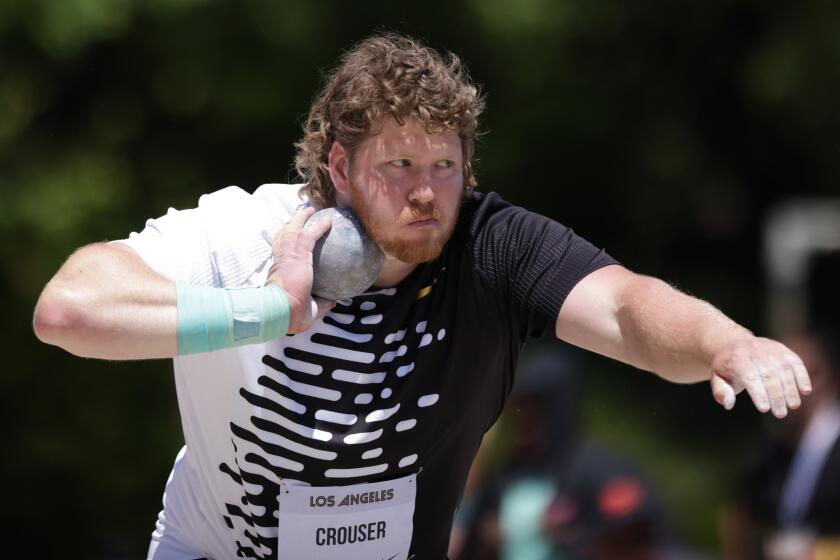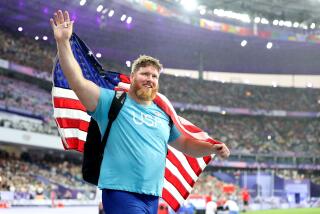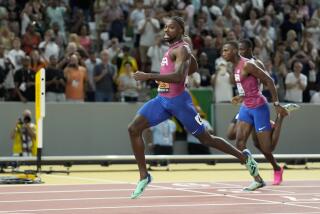Ryan Crouser wins shotput world championship gold again amid blood clot scare
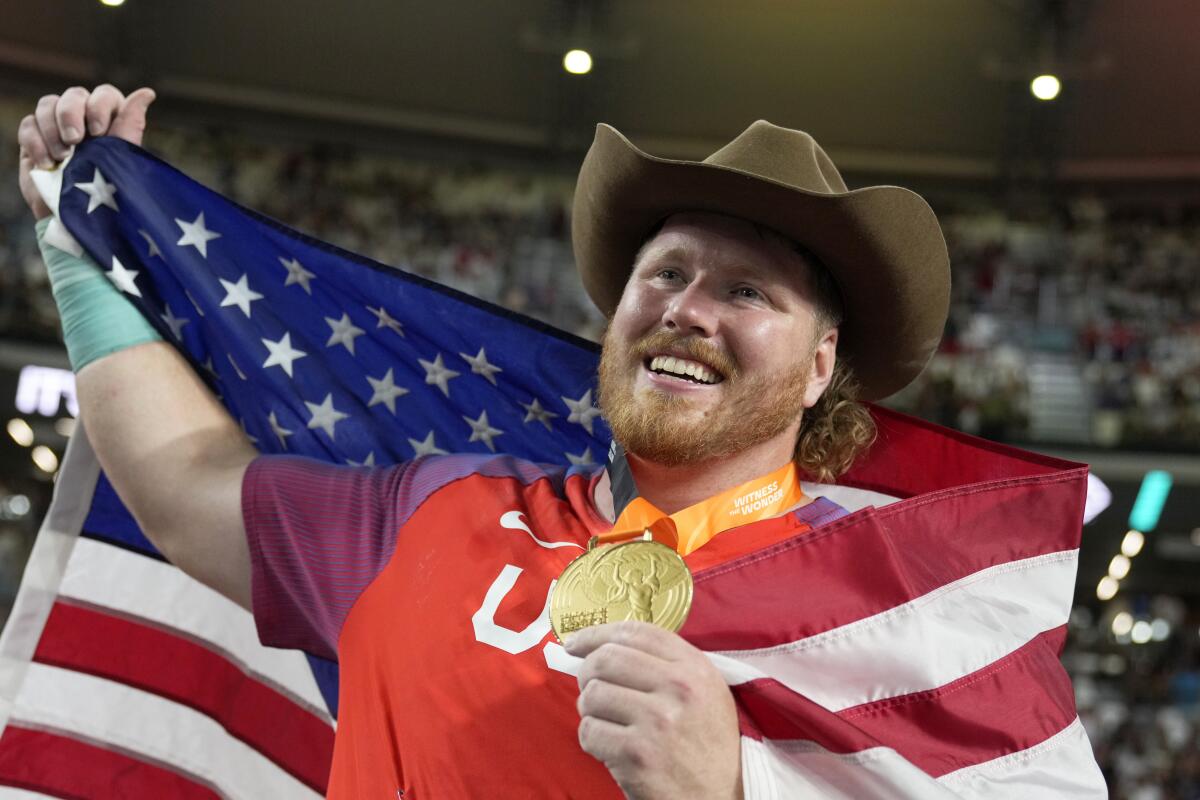
Track and field’s world championships closed Saturday with the most expected of results — but coming under the most unexpected of circumstances.
Ryan Crouser left the National Athletics Centre in Budapest, Hungary, as still the world’s unquestioned best to ever heave a shotput. Crouser stepped into the ring for his sixth and final throw having already secured the title. Then, using a throwing technique installed only eight months ago, Crouser unleashed a championship-meet record with a mark of 77 feet 1¾ inches. It was nearly four feet farther than second place, and only two inches shy of the world record Crouser set in May in Los Angeles.
It gave the 30-year-old shotput gold medals in four of track and field’s last five major global championships, adding to his wins at the 2016 and 2021 Olympics, and last year’s world championship held in Crouser’s native Oregon.
Ryan Crouser unveils a new technique that “clicked” for the first time in competition at the Los Angeles Grand Prix, smashing his world shot put record.
Crouser is now dominant to the point of appearing routine. But nothing about what preceded this latest feat was. Crouser competed Saturday despite the presence of two blood clots in one leg, a health condition he revealed Friday in an Instagram post in which he described “the last 20 days have been some of the most frustrating and stressful of my life.”
Crouser wrote that late in his preparation for the world championships he’d felt pain in a calf muscle. It subsequently became a strain. When treatment didn’t help after 10 days, his physical therapist suggested a Doppler scan the day before Crouser was scheduled to travel to Budapest.

“Scan showed two blood clots in the lower leg,” Crouser wrote. “Everything kicked into emergency mode at that point. Biggest questions being ‘what’s the safest treatment?’ and ‘is [world championships] even a possibility?’”
The clots perhaps had evaded discovery because there was no swelling, heat, redness or throbbing, what Crouser called typical symptoms, and “an initial ultrasound missed them because they were more distal and smaller than would typically show.” His medical team explained the risks of traveling — Crouser is based in Arkansas — and left the decision to compete to him.
Crouser is one to consider every factor of a problem. Growing up east of Portland in a family of high-profile throwers, he was born endowed with genetics for the sport. But success also has stemmed from his unrelenting willingness to deep-dive on his chosen subject.
At the University of Texas, he started as an engineering student before switching to finance. He finished his two-year master’s degree program in one, just in time for the 2016 Olympics. He has called himself a nerd, albeit one standing 6 feet 7, with a huge reach and a dancer’s feet. The new shotput technique he installed in December? It was the result of a self-described 10 p.m. “light-bulb” moment — but also followed weeks of tinkering with launch angles, spins and slides that didn’t work.
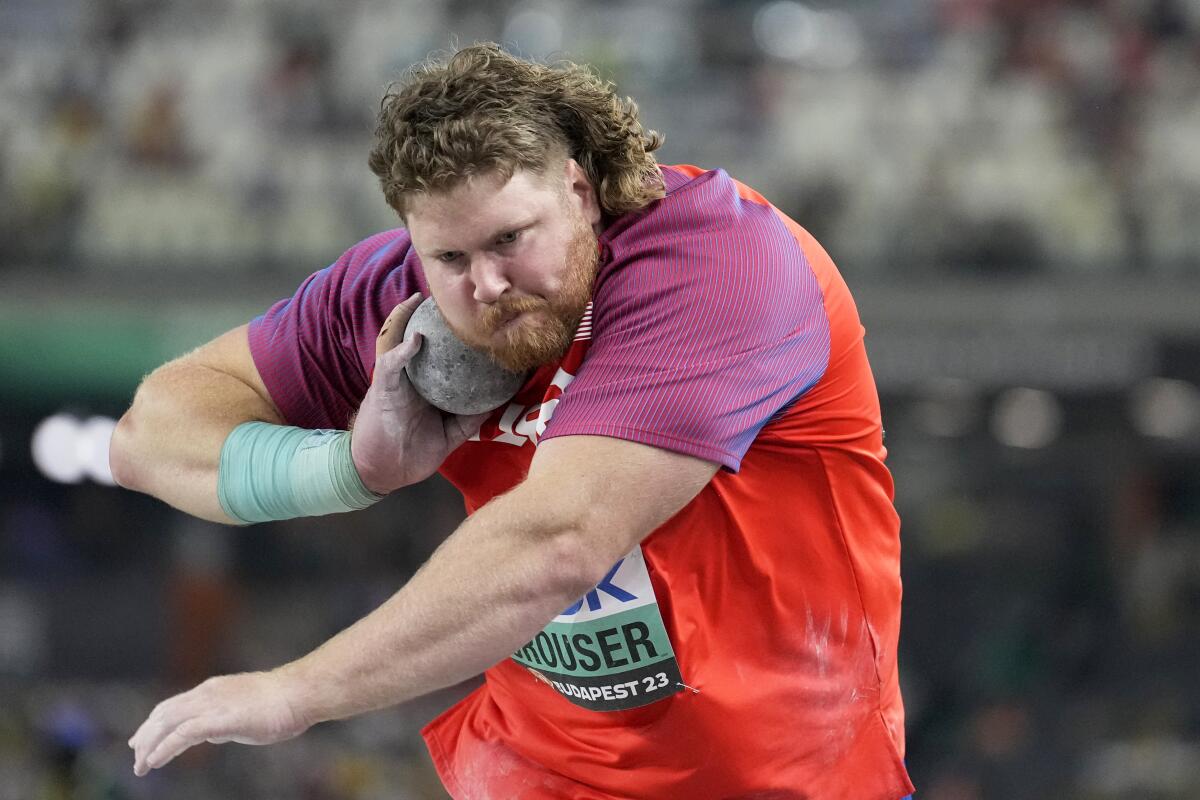
The decision Crouser faced this month held stakes far more serious than technique, however. When he opted to go to Budapest and defend his world championship, he did so while taking blood thinners, “so that it is safe to compete and minimize the risk of it worsening,” he wrote.
His health held, as did his dominance over his event. Crouser joins Switzerland’s Werner Gunthor (1987, 1991, 1993), John Godina of the United States (1995, 1997) and Germany’s David Storl (2011, 2013) as the only men to win the shotput at consecutive world championships.
The 16-pound metal ball still was in the air Saturday evening on his final throw, and Crouser was still mid-spin in the ring, when he knew the throw was big. He lifted both arms over his head and roared.
More to Read
Go beyond the scoreboard
Get the latest on L.A.'s teams in the daily Sports Report newsletter.
You may occasionally receive promotional content from the Los Angeles Times.

